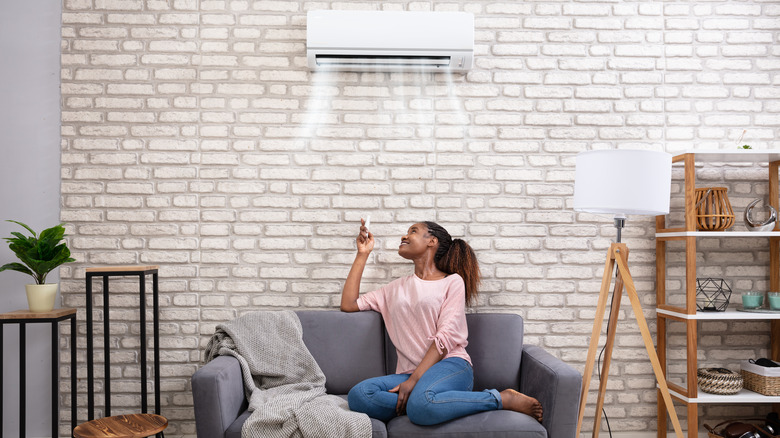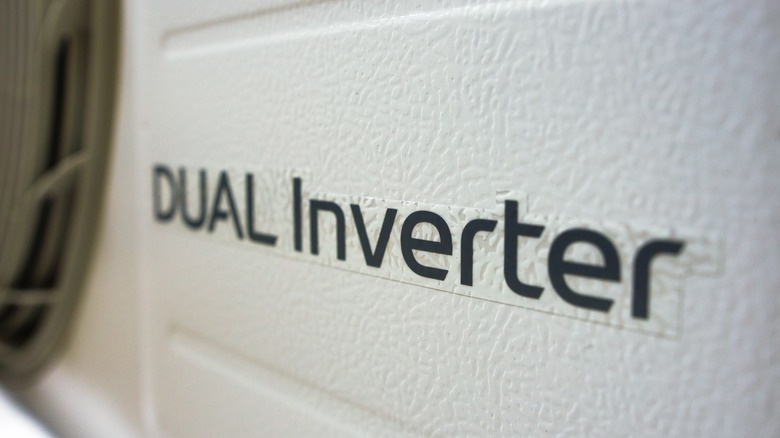Can A Dual Inverter Air Conditioner Help Save On Electricity During Summer?
Sweltering summer temps are so much more tolerable — and even safer — with a blast of air conditioning. Yet, as most of us are aware, these refreshing inventions are voracious energy consumers, and more energy use contributes to making those months even hotter every year through climate change. New air conditioning technologies that save energy are the responsible choice. If they're also cheaper to run, that sweetens the deal.
If you're shopping for an AC unit, get to know dual inverter air conditioners. These ultra-efficient contraptions are quiet and highly effective. While they might set you back a little more than other AC units, dual inverter units offer enough benefits to make them worth the extra cost, especially if you purchase a unit that's the best fit for the room or rooms you need to cool. The effort spent to find a good unit results in quieter functioning, lower energy consumption, and more money in your pocket.
What are dual inverter air conditioners?
The different types of air conditioning units to consider can be overwhelming, so you may be unfamiliar with inverter air conditioning. These energy-efficient devices contain a rotary compressor, a hard-working mechanism that is quieter than other types of compressors. Noisy machines mean they're wasting energy by making those sounds, so there's one source of energy savings. Inverter units cool better than other units by better controlling the motor speed than a traditional air conditioning unit. They respond to the temperature in the room and adjust the fans' cooling output in order to maintain the temperature, like a thermostat.
Dual inverter air conditioners have — you guessed it — two inverters rather than the one in standard inverter air conditioners. Counterintuitively, the two inverters working in tandem make the units more efficient. The two compressors run at a lower RPM and cool a space just as well as a single inverter unit.
Dual inverter AC units come in several forms to fit your needs and taste. Many models are window-mounted, but there are free-standing, portable versions as well as low-profile, wall-mounted ones.
Find the right unit to save yourself money
You don't need a physics degree to understand that consuming less energy translates to a lower power bill. Dual inverter air conditioners are gaining a lot of attention for their low electrical load. Operating one can save you almost $20 a year. While that's not exactly a windfall, it will add up over the years.
Before you open your wallet, make sure you're buying an air conditioner that's the best fit for your space. According to the U.S. Energy Information Association, almost 20% of the energy expended in the average home comes from air conditioning. Considering that amount of power, you don't want to use more electricity than you need. Unfortunately, among the mistakes everyone makes when buying an AC unit, buying the wrong size for a space is one that can negate any savings you're hoping for.
If you're cooling a small room with a machine that's capable of cooling a much larger one, that adds up to wasted electricity. Make sure you're choosing the right power level, which is measured in British thermal units (BTU). For some perspective, this LG dual inverter window air conditioner uses 10,000 BTU, making it a good fit for a space of about 400 to 450 square feet. The typical medium-sized living room is 216 square feet, while a large living room is about 300 square feet, so unless you have an open floor plan, this LG model will put out — and eat up — more energy than you need.


